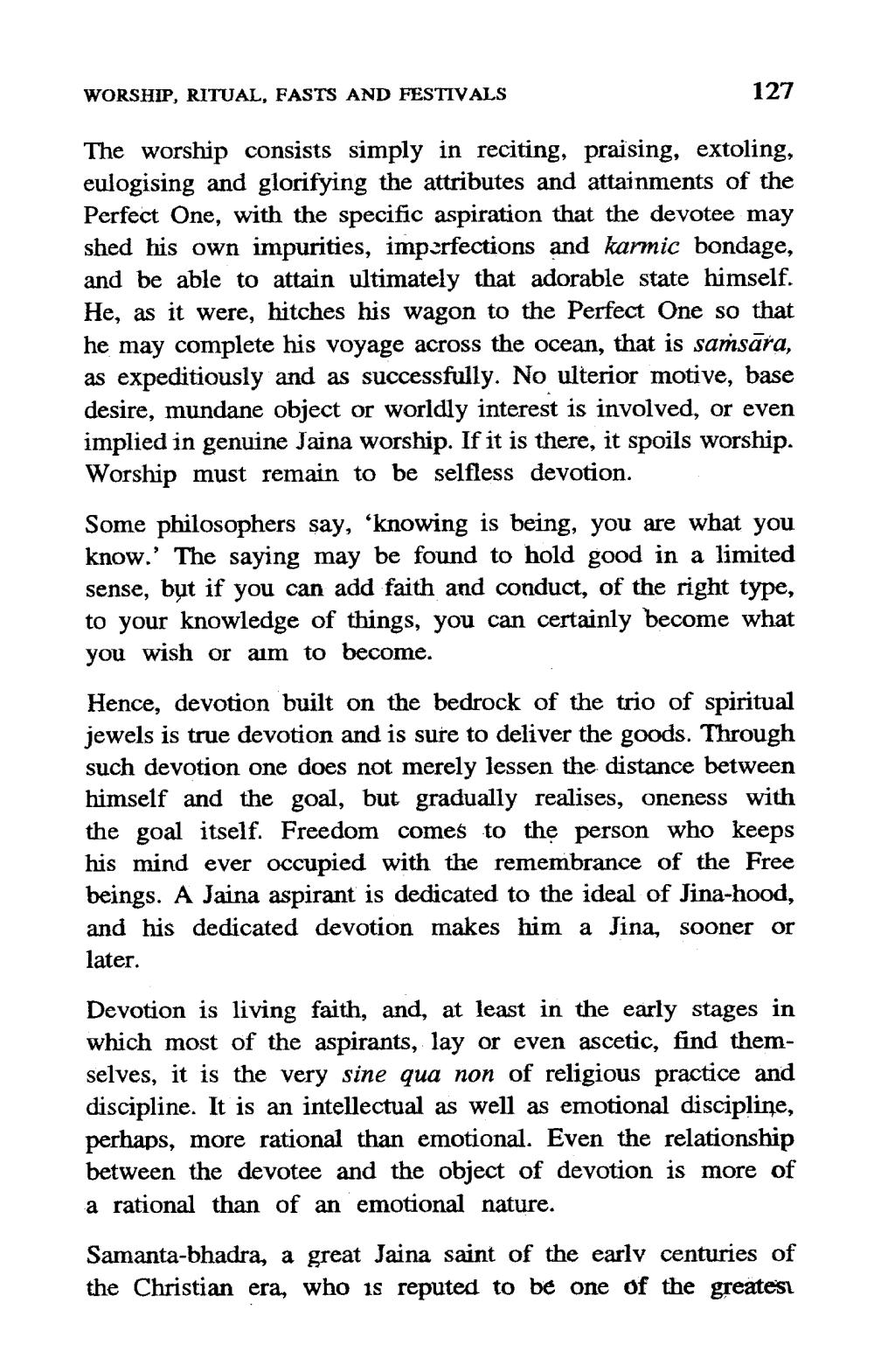________________
WORSHIP, RITUAL, FASTS AND FESTIVALS
127
The worship consists simply in reciting, praising, extoling, eulogising and glorifying the attributes and attainments of the Perfect One, with the specific aspiration that the devotee may shed his own impurities, imperfections and karmic bondage, and be able to attain ultimately that adorable state himself. He, as it were, hitches his wagon to the Perfect One so that he may complete his voyage across the ocean, that is saṁsāra, as expeditiously and as successfully. No ulterior motive, base desire, mundane object or worldly interest is involved, or even implied in genuine Jaina worship. If it is there, it spoils worship. Worship must remain to be selfless devotion.
Some philosophers say, “knowing is being, you are what you know.' The saying may be found to hold good in a limited sense, but if you can add faith and conduct, of the right type, to your knowledge of things, you can certainly become what you wish or aim to become. Hence, devotion built on the bedrock of the trio of spiritual jewels is true devotion and is sure to deliver the goods. Through such devotion one does not merely lessen the distance between himself and the goal, but gradually realises, oneness with the goal itself. Freedom comes to the person who keeps his mind ever occupied with the remembrance of the Free beings. A Jaina aspirant is dedicated to the ideal of Jina-hood, and his dedicated devotion makes him a Jina, sooner or later.
Devotion is living faith, and, at least in the early stages in which most of the aspirants, lay or even ascetic, find themselves, it is the very sine qua non of religious practice and discipline. It is an intellectual as well as emotional discipline, perhaps, more rational than emotional. Even the relationship between the devotee and the object of devotion is more of a rational than of an emotional nature.
Samanta-bhadra, a great Jaina saint of the early centuries of the Christian era, who is reputed to be one of the greatest




